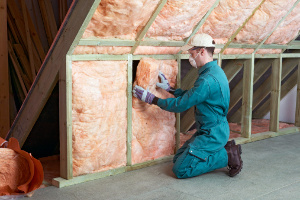Healthy homes debate fires up
Warm, dry, healthy homes are a trending topic and, with Labour’s Healthy Homes Bill awaiting its second reading in Parliament this week, the debate is heating up further.
Wednesday, July 26th 2017, 12:00AM
by Miriam Bell

Labour Party leader Andrew Little’s Healthy Homes Guarantee Bill No.2 aims to set minimum standards for insulation, heating, ventilation and drainage in all rental properties.
It has had a somewhat chequered procession through Parliament to date and just scrapped through its first reading by 61 – 60.
However, throughout the Select Committee process it has attracted strong support from organisations like New Zealand’s Children’s Commissioner, UNICEF, Plunket, and the health sector.
Little said today that he had just received a petition signed by over a thousand medical professionals, medical students, and other New Zealanders which was in support of the Bill.
“I’ve been overwhelmed by the support for my plan to make rentals warm, dry, and healthy from medical professionals, from tenants, and from Kiwis who just want a fresh approach to fixing the housing crisis.
“It’s time to lift the standard of rental accommodation to a safe, healthy standard.
“We don’t allow a butcher to sell rotten meat, or a car dealer to sell an unsafe vehicle – renting property should carry the same responsibility of care.”
Most people would agree that warm, dry rental properties are a good thing but landlord advocates feel there are issues with Labour’s Bill.
NZ Property Investors Federation executive officer Andrew King said they support the provision of good, healthy rental properties.
“But we believe the requirements for smoke alarms and insulation in rental properties, which were put through by the government, are a good way of doing it.”
Amendments to the Residential Tenancies Act, which came into force last year, mean that all rental properties must now have smoke alarms and that all rental properties must be insulated by July 2019.
Landlords are also now required to disclose the level of insulation in the ceiling, underfloor and in the walls in tenancy agreements.
King said the heating and insulation requirements in Labour’s Bill would add significant costs for most landlords and those costs were likely to be passed on to tenants.
The current law means that if a rental property has no insulation it must be installed to current standards - but if a rental property is insulated to 1978 standards the insulation does not need to be upgraded.
Under Labour’s Bill that would change and all rental properties would have to be insulated to current standards.
King said the increased efficiency between the 1978 and present standards is only about 5% and yet the cost is almost the same as installing completely new insulation.
“We believe that the cost and value benefits of doing this are simply not there. Tenants will see little benefit but it will up the costs for landlords and that translates to increased rents.”
There is no point in insulating if people don’t use their heating and research shows that many people – tenants and owner-occupiers – don’t because it is too expensive, he added.
“For this reason, we support the provision of electricity vouchers to low income families to help with heating in winter.”
Read more:
Rental insulation requirements are now law
| « Political support for longer term leases | Minimum standards for insulation and heating a step closer » |
Special Offers
Comments from our readers
No comments yet
Sign In to add your comment
| Printable version | Email to a friend |


